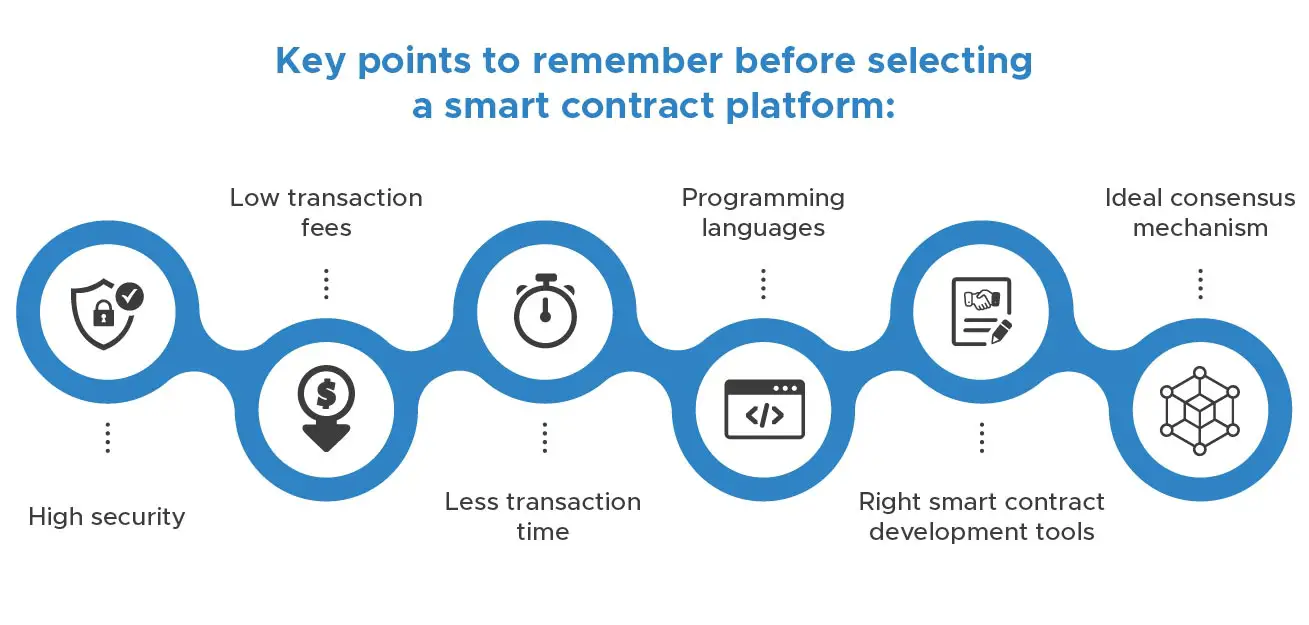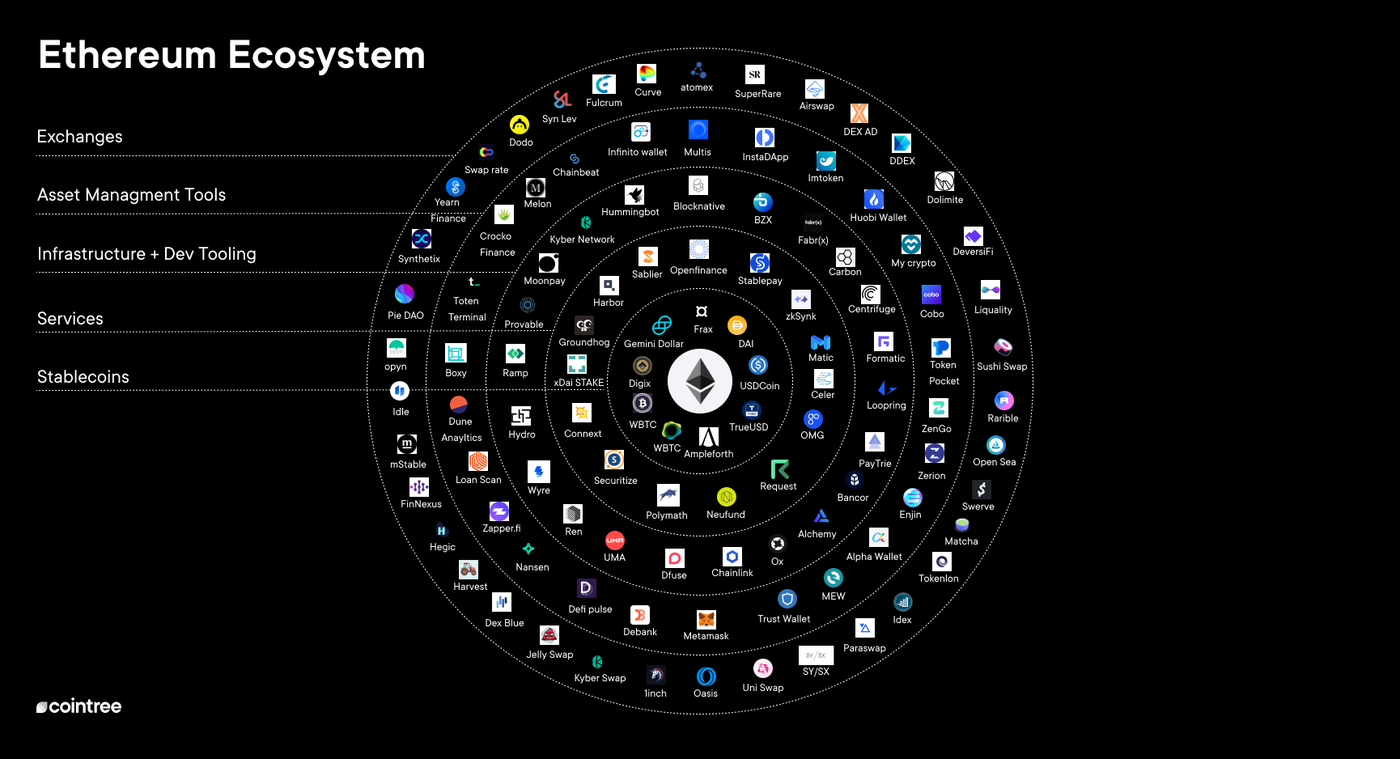Smart Contract Platforms: Beyond Ethereum, Exploring New Horizons

Executive Summary

Smart contract platforms provide a decentralized, secure, and transparent ecosystem for developing and executing smart contracts. While Ethereum has been a dominant platform due to its first-mover advantage and strong community, numerous other platforms have emerged, each with its unique strengths and features.

This article examines key smart contract platforms beyond Ethereum, exploring their capabilities and value propositions. We explore five platforms that offer diverse advantages in terms of scalability, security, developer tools, and ecosystem support.
Introduction
Smart contracts are self-executing agreements based on predetermined conditions, providing trustless and transparent transaction processing. Smart contract platforms are blockchain-based platforms that facilitate the creation, deployment, and execution of smart contracts. Several platforms have emerged beyond Ethereum, offering competitive advantages and catering to specific use cases.
FAQs
-
What advantages do other smart contract platforms offer over Ethereum?
These platforms focus on scalability, security, ease of development, and customization. -
How do these platforms improve upon Ethereum’s scalability?
They leverage advanced consensus mechanisms, multiple execution environments, and sharding techniques to handle higher transaction loads. -
What is the significance of developer tools and ecosystem support?
Robust developer tools and a thriving ecosystem support innovative dApp development, attract developers, and foster collaboration.
Top Smart Contract Platforms Beyond Ethereum
Polkadot
Overview: Polkadot is a multi-chain platform that connects multiple blockchains into a single, interoperable network.
-
Scalability: Parallel processing via multiple “parachains” connected to a central “relay chain.”
-
Security: Inherits security from the relay chain, ensuring the overall integrity of the network.
-
Developer Tools: Substrate framework and Cumulus development environment simplify smart contract development.
-
Ecosystem Support: A growing ecosystem of projects building on Polkadot, including bridges and decentralized finance applications.
Tezos
Overview: Tezos is a proof-of-stake platform known for its on-chain governance model.
-
Scalability: Block size optimization and transaction batching techniques to increase throughput.
-
Security: Proof-of-stake consensus ensures security and minimizes energy consumption.
-
Developer Tools: Easy-to-use smart contract languages such as Michelson and LIGO.
-
Ecosystem Support: Strong focus on formal verification, with tools and resources to help develop secure smart contracts.
Solana
Overview: Solana is a high-performance blockchain with a unique consensus mechanism.
-
Scalability: Solana’s Proof-of-History consensus enables lightning-fast transaction processing.
-
Security: Novel consensus mechanism and durable ledger design ensure transaction finality and censorship resistance.
-
Developer Tools: Features a powerful SDK and mature developer tooling, making smart contract development accessible.
-
Ecosystem Support: Rapidly growing ecosystem with a focus on DeFi, gaming, and Web3 applications.
Near Protocol
Overview: Near Protocol is a sharded blockchain with a developer-friendly approach.
-
Scalability: Near’s sharding mechanism divides the network into multiple interconnected chains, improving transaction capacity.
-
Security: Uses a proof-of-stake consensus mechanism to ensure network security.
-
Developer Tools: Provides comprehensive SDKs, developer dashboards, and a suite of tools for efficient smart contract development.
-
Ecosystem Support: Enjoys active community engagement and support from major blockchain companies.
Polygon
Overview: Polygon is a layer-2 scaling solution that runs alongside the Ethereum network.
-
Scalability: Offers increased transaction throughput by processing transactions outside the Ethereum main chain.
-
Security: Inherits security from the Ethereum network while leveraging an additional security layer provided by Polygon’s validators.
-
Developer Tools: Supports the Ethereum Virtual Machine (EVM), allowing existing Solidity contracts to be easily migrated.
-
Ecosystem Support: Hosts a large and diverse ecosystem of dApps and DeFi applications.
Conclusion
The smart contract landscape extends beyond Ethereum, offering a diverse range of platforms that cater to specific requirements. Polkadot, Tezos, Solana, Near Protocol, and Polygon each provide advantages in scalability, security, developer tools, and ecosystem support. By carefully selecting the appropriate platform, developers can optimize their dApps for performance, security, and user experience. As the smart contract ecosystem continues to evolve, these platforms will play a crucial role in shaping the future of decentralized applications and services.
Keyword Tags
- Smart Contracts
- Ethereum Alternatives
- Polkadot
- Solana
- Scalable Blockchains

